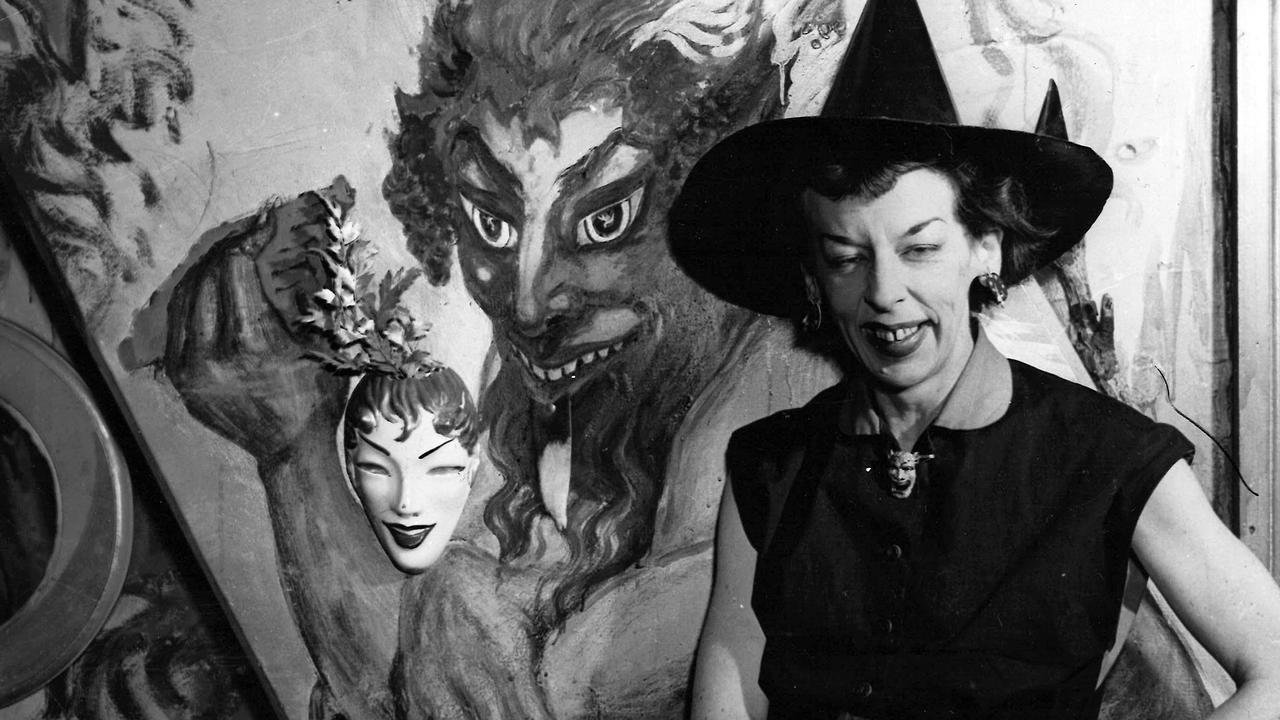The wild life and times of Melbourne’s eccentric musical genius
Percy Grainger was a musical prodigy but wild eccentric who made his own clothes from towels and pushed his piano stool in a wheelbarrow.
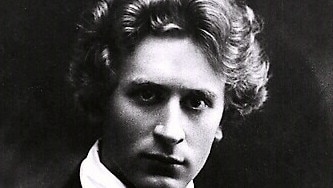
In Black and White
Don't miss out on the headlines from In Black and White. Followed categories will be added to My News.
PERCY Grainger was equal parts musical genius and bona fide eccentric.
The boy from Brighton became a brilliant composer and pianist, yet was known for making his own clothes from towelling and wheeling his favourite piano stool from concert to concert in a wheelbarrow.
Grainger is the subject of the latest episode of the In Black and White podcast on Australia’s forgotten characters, out today:
Jim Haynes, who features Grainger in his new book, Adventurers, Pioneers and Misfits, calls him “the eccentric musical genius” – and says, if anything, that’s an understatement.
Haynes says Grainger was considered to be perhaps the most original musical genius of the 20th century, but also “certainly more eccentric than most eccentrics”.
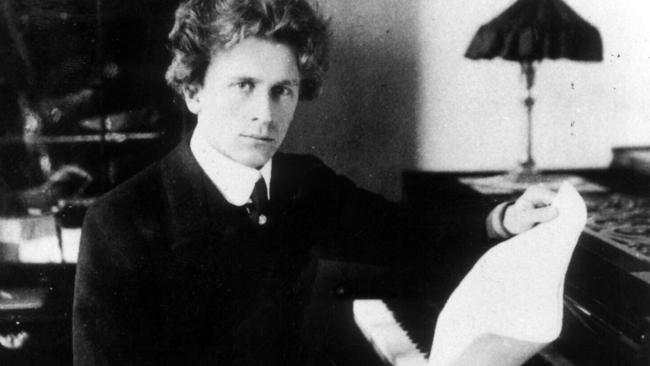
“The way you decide whether someone’s a genius or not is whether they naturally know things that the rest of us have to be taught, and that was certainly Percy Grainger,” he says.
“He was a true eccentric, he was a true genius, and he was a musical phenomenon.”
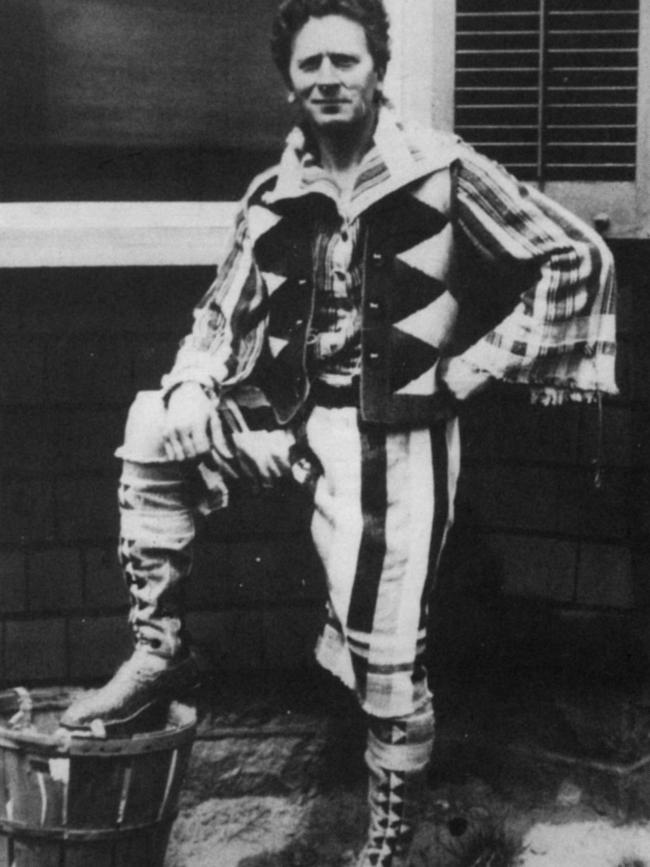
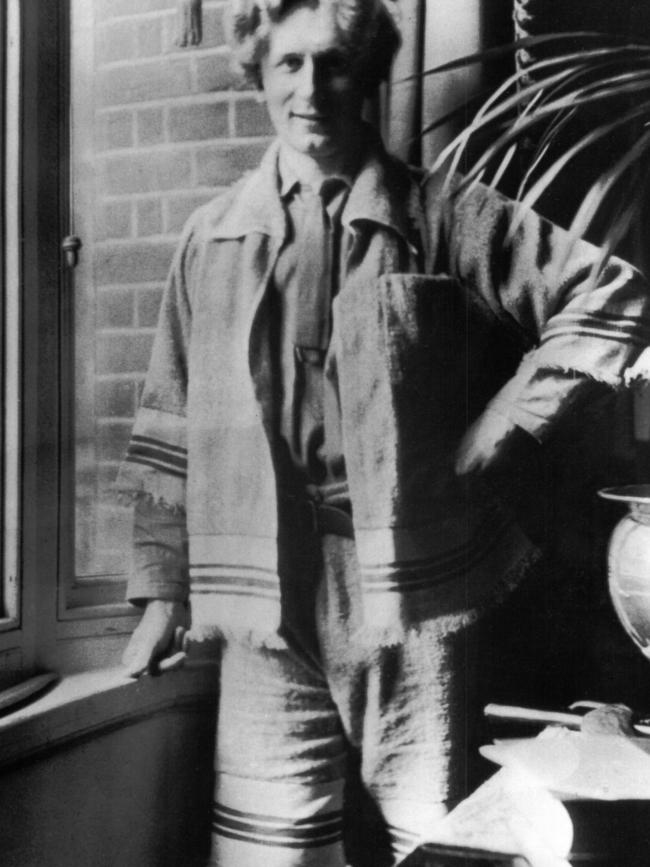
Grainger was also an avid collector, and among the strange personal items he gathered were whips, bloodstained shirts and photographs of the results of his self-flagellation.
In the 1930s, he created and funded his own museum at the University of Melbourne as a tribute to his life and works. The Grainger Museum is still there today, filled with more than 100,000 items, including some of his musical inventions.
Haynes says Grainger left his skeleton to the museum, and it’s been suggested he wanted his bones to be used as a wind chime.
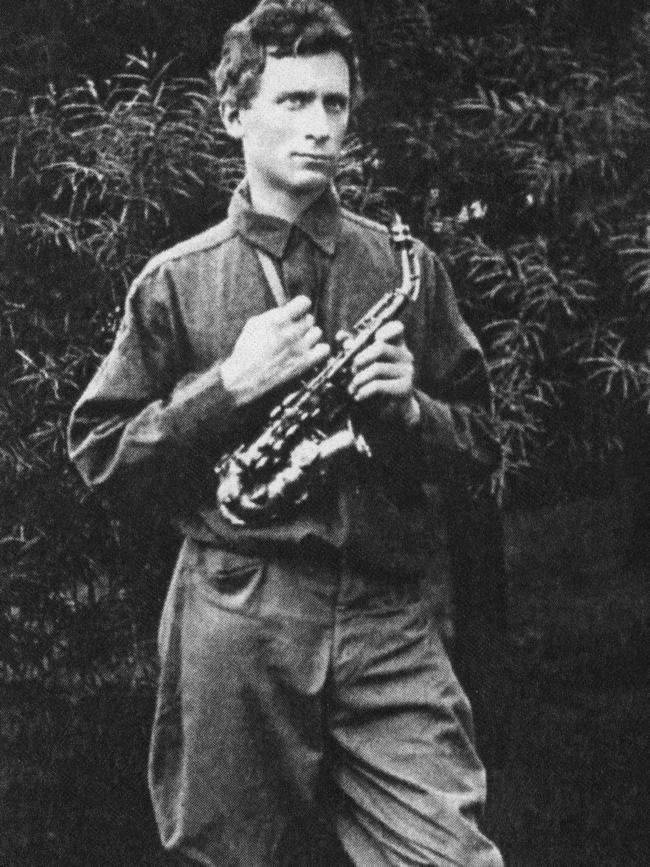
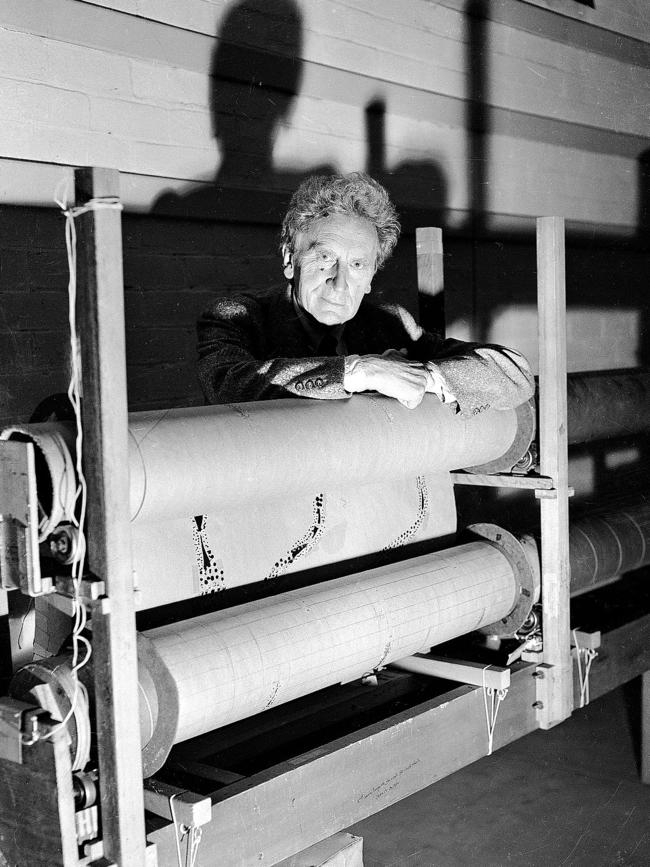
The Grainger family was well-to-do and well-connected, and Percy’s architect father, John Grainger, designed Melbourne’s iconic Princes Bridge.
They had a circle of influential friends, including successful Melbourne builder David Mitchell – father of Nellie Melba – who built many notable landmarks including the Exhibition Building.
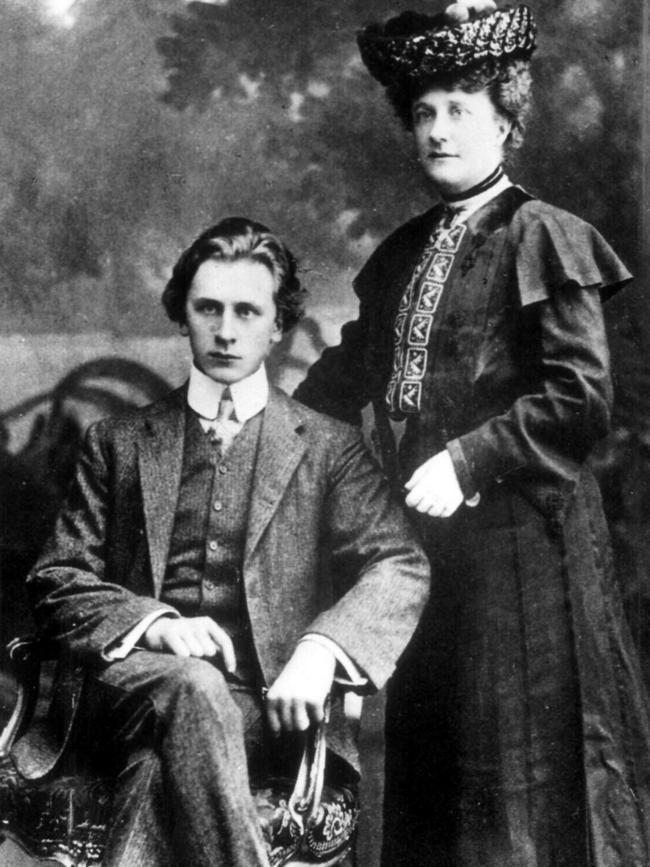
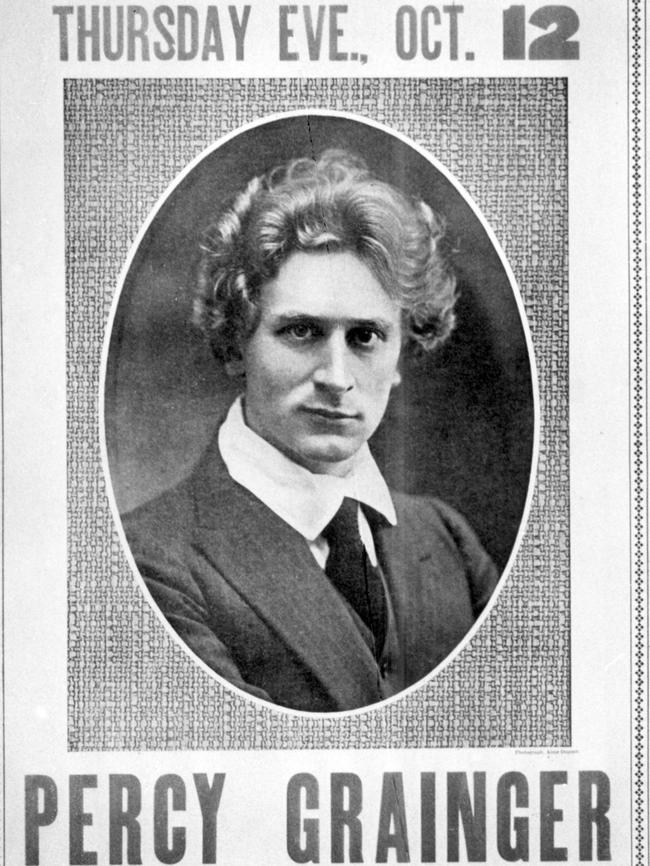
Young Percy was privately tutored and homeschooled, and his art tutors included renowned painter Frederick McCubbin, who was in awe of his student’s potential.
“(McCubbin) said had he not gone down the musical path, Percy could have been equally exceptionally talented as an artist,” Haynes says.
Haynes says Grainger’s eccentricity extended to his musical compositions.
“He would write a symphony which required 22 pianos, or 30 mandolins, or in one case some of his friends whistling,” he says.
“He was so famous, of course, that he got away with it!”
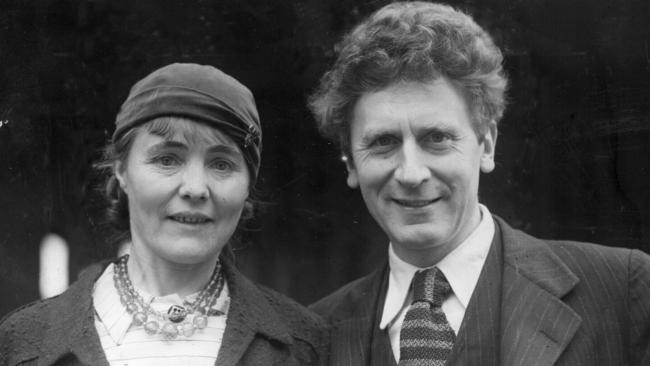
While his music and lifestyle were unorthodox, Grainger always lived his life with great joy.
“When Percy Grainger died, his friends said of him that he was the strangest person they’d ever met in their life – but the happiest of men,” Haynes says.
Listen to the interview about Percy Grainger with Jim Haynes in the In Black and White podcast on iTunes, Spotify or web.
See In Black & White in the Herald Sun newspaper Monday to Friday for more stories and photos from Victoria’s past.


